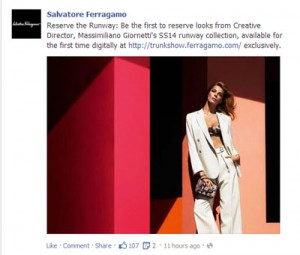Facebook’s plan to acquire mobile messaging service WhatsApp for $19 billion has earned the ire of frustrated media, competitors and industry pundits, and the envy of those VC-backed, revenue-less digital wonders waiting in the wings to be swooped into Google’s or another Silicon Valley giant’s arms.
Before discussing what this means for marketing, here is what this acquisition may really be about: an effort to dazzle and arrest decline by an over-valued social media company that is recognizing how fleeting user loyalty and advertiser revenue can be. In other words, Facebook – with its 1.2 billion accounts – has tied India to become the world’s second-most populous entity after China, but quantity has not translated to sales – as many marketers eyeing the two Asian countries have discovered.
What’s up …
If media accounts are any indication, Facebook is shedding young consumers at an alarming rate, something that is not attractive to advertising agencies making media-buying decisions or advertisers paying the bills.
Another strike against Facebook is the lack of a sustainable revenue stream. Even as it boldly pivots to becoming a mobile company – and who has not heard that shout across rooftops – Facebook will soon discover that advertiser money flees with the audience, especially if impressions and click-throughs do not lead to brand lift or sales.
Now would be the time to trot out a big case study on how Facebook helped a brand achieve its goal with measurable results in terms of higher consumer engagement or more sales. Now would be the time to showcase how mobile buying on Facebook across mobile and online channels convinced advertisers that ad interruptions in a social context – or confusing readers to distinguish ads from user content – is the right environment to generate positive feelings for the advertised brands. Do not hold your breath, for it is not in the nature of the uncurated social media crowd to be judged by the same metrics that other media are.

What has happened is clear: Facebook is buying relevance, even if that lead will evaporate in a couple of years when a new application or service will supplant WhatsApp. Wall Street, in its usual blurred understanding of Silicon Valley’s shenanigans, will salute this deal through with a slap on the wrist of a few percentage points shaved off Facebook’s share price in the short term. And then it will be business as usual for the very investment bankers, banks and venture capitalists who shuffle the money chairs on the decks of yet another Titanic bubble about to burst in a year or two when the market will suddenly discover the iceberg in its path: social media revenue growth is not sustainable simply because audience interest in evolving platforms is not.
Any social content and communications model that requires the customer to do the heavy lifting on a consistent basis will not thrive – Facebook is not IKEA. The audience will tire and will move on to a new platform. It simply is the nature of the beast. At one point, it was Facebook that was the cat’s whiskers. Then it was Twitter. Then SnapChat, and now WhatsApp. Bet on something else in a year. In the meanwhile, 55 employees of WhatsApp, including the two founders, and partners at Sequoia Capital – which poured in $60 million to fund the messaging app and will receive a $3 billion payoff – will soon be shopping for a grander lifestyle.
… comes down
Funnily enough, if Facebook was really interested in controlling the messaging environment, it should have made a pitch for T-Mobile, the nation’s fourth-largest wireless carrier that is in play. Carriers are the new mobile gatekeepers. Or it should have bid for Time Warner Cable, one of the top five cable companies that controls Internet, wireless and television access to tens of millions of U.S. households.

So will this deal have any trickle-down effect to brands and retailers? Highly doubtful. WhatsApp built its credibility by eschewing ads. It charges only 99 cents a year after the initial year of free usage by a subscriber. So the grand total of revenue from that stream is $450 million, if all 450 million users continue to use the service year after year, even factoring in churn. Facebook has not announced its intentions on integrating ads into the service, so brands cannot be part of the fleeting WhatsApp message exchanges. Facebook CEO Mark Zuckerberg went on record Feb. 19 to say that ads are not the right way to monetize messaging systems – and he is right on that count.
Which means that the ad agencies are left high and dry and without the ability to play middleman in the creative and media planning and buying processes of the world’s largest mobile acquisition so far.
And publishers? They are keeping fingers crossed that overwhelmed advertisers really do not squander their budgets on the latest shiny object from that new weaver of American dreams: Silicon Valley, or Sollywood.
WHAT A SHAME that there are no adults in Silicon Valley. If this deal is a harbinger of things to come, it risks yet again the stability of the $16 trillion U.S. economy, brought down by the weakest link in its chain.
Someone has to teach Silicon Valley Economics 101. Put a dollar in to get more than a dollar out: that is how a business lives to fight another day.
On the other hand, there will soon be about 53 new millionaires in Silicon Valley and two billionaires. Marketers should offer them new houses, cars, watches, jewelry, clothes, footwear, electronics, home furnishings, artwork and hotel experiences. Market these products through highly personalized direct mail and email, as well as targeted banner and search ads online and on mobile. Maybe even test a sponsored post on Facebook.
{"ct":"oeO6fo2VtJn5j\/IgRkZD7AtTtNS6Tvpvnugqh+KORevpwp\/XMnw1CYBw7y2hC6cDvRvAqlGWm8ar\/pvet5amW7xiawj12Q7DrX+p5sx9hlzv8CcaLselwG+pUwk5xft8GO2zwsjInaJXKybfUK5VNkvyWzg8174RQq6a1R5fqcxGMPFm+O2URXPfaTvH0NWSC1E896fFifcPy3hS6VBut4Jv44FEvLz8HyinWIdlHCf0zlNHXRAlqE6KsnBUeGNIhkAmBeAaHe2TNe2r9rkxsHST1OumJPK8qogbQo7w4zv0dDBhJp1HUnniIn1sxGQ331cmWjDI5h19bDXqhFPN5Qe5Qp\/T4uJkZDKnMzjAj5cEf16gxpN3mbvQyz8Nsf\/MYX5O3V1KpnSa4TumXCVs5smZIe6Xx6AJJHqeWOu6pKty9TRnb9l+Ys52E+8S9gnbQg\/5DwXZg47ZnJRvJiMOOP+5UOvXISADA2YN7+9R3s\/fEqj2WFkHbxSxVatbrFDxtRBRp+CBORi5FLu+hEWQEGVXyducezGJo6Do6n7Tzp9cMLW6JEY6+mCNIxMb2NX6vWGip\/2yBTBGdZUprJ8+SmUFnB33xZmPL69bNVSNzh6\/gwQrN+EEunuPMSI3A7M9sZrwOycBLXIEyPP3kM3+BzzgWyNDxsEznYL1hFflbM81qnYky8AcFVktP8lquFiWnbbOKxdXVT61keeZuhYxoeuHsEJqGIx2kgSQl\/2ybhFbW5fJpNp+ms5oSWL0ylDE1WCBOQgKlIFx7AxzQdiMR69EzSbR2ZFO0Fxo7JJn\/OEAyOdBHsEQNGhP\/SBJDVIf7aSlaejXe9yOusOcJtPFGgD1WaYzUqdQ\/voBja7MA5f3TsvDWcMPIfjuVWJiN3YOGj2WnrdSfoZU7FkdsuZ5nO5QObUZBDDk0ztwG9+ZPgiSPqpfoCjpdmXAZ28Ro98GX5BfwtkY9QyCqXVhKA88TElu4rN00crMrVjAA6DQX6ynYjcxQDE5U\/3XWUCtZxQWUQWuvAGB5RmPHr9uMRAHr14aRH3JerSeGEydaBjtX6rOSqSNT4TdwAGxHI4CaXyYgD+dgXfFbsvyGds2v6OJC5wXOZdhnjgtGaujI0GsOW9cNhHM4PU0ldVz601CkW2TIirM2JVBI3sySvTkhPn3i6cd0T8yssjCUjhdqTw\/YYH+mYCdJuBL9XM8Z\/nOK4Fx1k+1TDPxDhm4X9vmhF1oVgOaOu72OVncWx5r1sEa0BEi4b3pwMpBWQ6K6T8wT7AC1An+Njd97pnXH6o8OPRKZ2ju87PFNeh9tO+rFC7Jt\/i0Kai3w\/xUmD6uuSOK2T5PWpN6ILd4zdOzeRtsJILryss0Wo0aOxfe3cbg\/njvcHk3qn\/3wN7\/ok1sUWRzeHwsxMB1IXPPu2JJ+xL9mCSmmm52wTkdFfzyAdQf+1ht4AU6hniLJBTHkRg47YAfY7hONCDoDqjP5ewgRhvgDpRWDIxy\/RsbDGsO6J16FhhBATpbSO7mARSMtxTK6\/Ojw51MI1kXBigucr8IDTe6gk1fMaSRLKVwcLaAnKevp\/YjzW7iFrxcH4ii7ostuH13oEvYxuepI1yotqA9VoLjNmSQRLU7m52u\/CN2icK\/QD6AtYrr5HhZBThY+Eib\/N67x7MGTzf15ELs0+g6kDDtOIoQuCe22JQeQxVNguIcTn7L4ggk8+SItTuY5\/fmaUi4bj5yv96ql6sRRLdHbhqCe8Kfz9R7zBoLb47VBKqpWdxWx8mowaM98BcYiB9D5hDzVe3zZr2NrpbefsQIP97DNea1hLCVsPyJpg35jEXMLc++w+K3OpGGNozE1M9aBkRf6Mk7KhgUoxXel35OQJdqJQ3jhO7Mzj+m8N7GJWXpq2wc0GD\/8FJMJYaMAlWjyDua5x+zbZ6C0TlrD4RhgI99pSQRbwDF0iNez\/Hpw\/G4cNf2GsCZ1HnAiQqSsTAnN+5k8KLZwQ45\/jNd4ULDpL0Cbuk4lXwwLBVnwp5MyEXgl9mJqkCYGbyJIo3QGmjB6O6hc5Zy5qSoiHd56L9Rswrvf1yKod2yqU0YXdeTkBdfP+Y9hHEEg6GEIhZlRNKLv2Z7FEZEB+5xx6BJBSiWxidxXDqsnyOli6dB8mgAP2hBXmH3pulO6dHSG1TueKpPFzKgljlGbdGxX8+fEdWeMs4lNbtKmG6ybivWN\/iDBk1O\/I40iJxzDgga02\/pTJ+gZdTs0+qeT6zgr3oYmSUmPRl1KVpaDvLbCclvI8qERQ77\/SDnfSu5L9DmE8ztyzehDpoqOcDvK87qwAjmDFC\/SJf2Ga2NQyxYr6ix2Bhn8OCSXra2ixQmmkISeKZDxwDSkrkECe7MOm2xY\/ltbW1kFNm4lBsn2n9MrQEPL\/tK5fhFTQ+gbZweOGUYiyBVrdum3S1Ma+pEG64tZs43sX+vz71SiOM1ri+UBGqYsxT9Ts630GBKacoZF0vofoOhuBsfPikWv\/XyToWjWnIwfcS4SG2raXKn6foR8g5gKAqMUTnLdcguT0iKkCqDNarRrJWd5c2i1i+qJyHZd2k5hWDyAIFte5c8xAdyJjN+elLIjehBLG5EpeznRyKsZTdpQ1JGfghcOBrNBZkrFdhqw6bDMAfCOb4q1aRYHNfQgHlAcx2XB0PifFd7fkmoq0wgYqsYkTVV3GFbkTNqJ2HEV69s\/tLUyX04RvIx76DR97e3CVp96pZCZ4qXCN3hg0shlncq\/T9KHZSJ7PUhray4RyxJahIRzuA0YKc5IpUwDktAtD0G3YZ3opN4OwXWKe8+XterKWH7gicdsqB5ih2yYYeH+iDZudVo73xnH85dqHw\/V0N7c2t5fddB4StOlSyq3K1oaGntB6RT\/qVEyZW1g8Q+2jjZWd9Rc8meTrl4i6A34458vOn3+6Bxpf3nkaAK75uRD6jxP\/n7W1zq62ZOib8U6R1o4OZix+bEfScVuzuhW0eRzqU8sc49DdK39ybZPz8zuNvAkwTPJ\/HChDsijJbbrSClyUEhopASsM+tgbg4zFpsRQ0Qf5zyqR0CnwvYSqix2jLTqXbe8hwJRBscC3CILf7fMUuIZCK+w4Pg21lJpJn4P+eRvXE59ZCefp8GzJ5gbRkf1QcH\/KQgQX\/Pmkll4bkmf9njt74uTs0c1IMZqyLjMJW8JVVh4Ni6zQ4W1YG4CfCEfE7ibrR\/qVDcWeNVKKiGWd\/v\/sfThqRkW90eDsfE51\/51UUgz1iT8g1Zf97uH2HP2PAcJBFVY\/Py7IKd8Fo8YdjEn6se6\/lxpCthgALQcUM5TawZgGSUqtps5kFFd9aTSEDHfUIlrAXDXwkFF\/MqHU5v3GtlNuPfxck7NZ+ElzJOzne3ADqLZ73N+iwpveeiX5qJuu9BYd9FJKddehU63LniNhVENCRjKZb9wPzjCoAPujyRHS1sYWfRo25ImXo3wTFugBnwUGkkYqvQ+6xq5CFHq5miZrkeobCpNfQppI0KnPXUEFqntqJG+rWTbeFz2YMSyNYP0ao0FLKwEgnv3t+KlR0YIBXMZB6c+1gTy9SIf\/68u3hrOZq5SjpUf9bV5ByNwQBYOLh1Giw0dBpc2LZoqrvbEbFdj9qDrqu7rVNLloms4zddcEQO8123ZbZ1agGremgoW5Bf\/zNBSCeEaQ50j1ZP1mlZDqE0SThY231ztCAusldK\/Qd3PwgvVwe\/yQL1P844xFJE7NWjNtEF2Sx6Wv1gqcRvWAMbizR+9yo8dnUjZRpRAgO0gxOmXfker5qZcD\/08uMcBmzerlyuLbFOChDw4fSRwh9RRRiW318B5VGrjlSFzmZQDjdAqT5fy6WcPxFCq1kfoh5drIDtvwnz7JgE+b5Os4rBWq2aqhtIOb7zrjvpn6i\/r9omNGJVfoP9pyL549J8ajXgbsrtxVHHr7MhMT5kISSienfCwwhcqtRBiY5rqd9uMN\/fY8cXHd4lJrArXzcTg0kWSmzdkUwTfp7B1W8+HCeOXWq4cPli55F+JQGciChxLytYchchGvERNTSH2Fsx12gjluE4dWsqMDt9PuGbQzO0bjkxwQbc42ZO0K268NHD8AMfW4ueJ95FA62m0FPXGvmjs4rKzBjaLthQg2qIW6E9jRf4XRlIotFOm5q5kyukoJ4Xaohu61OB\/xX0fHn1pqjNcbPZVeyb30fBo4pX3LnVxwaCUDFp0rrJ5orHJYznMNK7IfqtDyDuJjB\/2RVW2fSAOLeReFXyNsnahZVCW4UKFC7Ne+f2xmRt+bAsEnaoovBmEx3f2Na9NY+G7eDawlTSD\/uoXnTHYUTdLR9F73wCyRo3gzoNCawkTirgzLctEf4EfwPlbneaGjv52\/dxDE1HTgWzNHVUvAIJszcauF3kU9Atzk+pv39VoPbfoU87ap0CeOk58RgZMZawg9EQw+fRoq47lh2EIjgIB4ieY38Y+SoCyjBV8qZJnj7sZqY3pP6jah4yQ9zAWyrNKfvcY8tVzYzcQR4TTCXioJjcuELnD7j0RhcUF5lSGrPuDpOjqbpPTEMoJc4vT8ubU89An6lIQHrdMwsmmcck4w+Ses3Z\/PAcNTxiprd8qxV0n1x3+v3Ey6\/hIafUZ5M+iZMzdLprWyLCWHSAHG7kw\/OztOKTMjchXlCgDJbthfFQbCkWlq5uWYmKaJ1bqPT04TQY+GBN8Ar6KNvm0yaPITQvGrkNzm0de6bpp82SyMrfWevcN29d51rA80TmmvG1JmHkf1ikc7RBcRSHaVj\/3nD6QlM6d8V\/s6dy6orcXwKd88XUw4wVgPJsHob8eGxEHUqnPBudrJgeCiaxUS7No\/z85NXDtetZI4C3A1HtoLw6qRVbFve\/MASwWhoWlRwkOSUUo18NL0niQuM2ioBYZDpacJDsJAxDsC9phaQXtzeLIrUanJX\/X2ESj4wuc9oqdhSr2+aL6GXkvLQZXM9cK\/ERU+Ez0QCSYe7e2YepZD3EeigDbF8HEqsmP1hJQd9yo5W7VHFr45KNw7gGaUd18rt6LG7VxmAyrzeuN\/0avWiWhz1ELm8zYd71mnfVvpB+eBy8BUDY+y\/xggYzox9Cfns3ZcbsktU4+psgj0PLbrOf0n30HaML5UIWhIZX+EymaaoHXF30fvUs9EICJzv68\/WfNmnxp132FD1Vu4GgNaoCzv5DicH0ha05TheLFb6DOe43c+NPha6dsM6l5QA1yaUhwDFnVkukwY1P1ChZtHUf4R663dc3spGVM9TKbUHgC6mUImznZG63KVMwqQjZw4dJvGxP\/tiGhPGT7bgEs0PzJJT8WM9+bJIJWZe5A\/gn3PJeFRQq\/Jd76zvoB9DBNRxF44DoL6VHoQdBJpIh6czFT5JpwxFIY9WCsfa15bK9RAxuFcfmJSncrXiLk2xp6Fb5tQeV+PCFha2ptUb6FkJ50YL3+M5srOHkeR+pG137wCvg73uHaxIRgGcb0CssunwrR9Ghvf5okSwYClX5BQMtm4rwM6jBCeRqOxPbEPzR2vc8dOsnkatjL\/XlWs7qAy6NNWz3EJdXfb5qPSQe6Fqzd6Hibga0yjR9h6j\/yhu90witonprM\/dAcYH5g+sKtOnYsOKUqOm2lEHZrqTwR3B\/f3FW\/iYrCA9\/rw4RLSRWrGr+qYAZRMT0xos9lLP6i4o6jxIn+wHWe\/72gJwPwz72OWhvG+LS8FtjcHujlitaivoR5SliyAsXOaKNDfuNGXGztu2YgNPE8j+zvxxtE96tpbltGo9jNX7h21QhOc2F8OAa4R4fFy2uZIejEOxCiBT0cHXUrbG9lrRHUxJoY\/Wyr4SdoHqyF5kvpMy0nYVqxAQRjufL\/USfUtWUzOmTryZkeGZCzjqutkqtx7UtKbOGcmBaUme8UtnKmHrTALuanzmTY27KXDNpnTF6C6BvmV3iLmIwOKDGPZ0DXxg8DkpF3w9a41Lnvrh337CbJG+Heqze7garMmY2w3ZzAyxsgyKmeqvRe6LSMATLu7fW9YcgRUtwLb9iALHI4Da6gW+r1EiEMs66G0M4ZM2W3LyibY+9D4D91rIruDhkfhs47GZ7jaWTh2nyAIPN8d\/Oj5g2VTNA+n4cm9PeCFI\/Vmxht1ZgKAnnVKTXuf\/kPnA383dzY9vfeA2aTkvXUBxWd3LRBlbn0daB1+E2FXS53GDUaj0tXaJePukh19\/BW7psiVqYhET1abfrEDUN+7x7jB5yEDJ41BwXVx8VQr8QsFklrAHjDnfnfhlfkonB3lGhiDfkDwP3zVfVxP2k8O6sAWohH5Ofm6X9sN76KTvSHhNUrx\/flvJMtl+y3sw7EyLcfMmM80hPaHXnROMeEXIt6S6\/DdTeVhGHa1x6ceE40DleDLouNfbxbzPQtHupzdTAHCDFwYuHyobGjXCjnbL9lUqDD4iLxNRQA7h4NvSlVeVoU4MVB8iSZpia+dMs2RuHpP7ovUnJ01Did733LHktHJ0Kq8LtW\/asspj5Qxex2QqBMXLMDvG\/yC7nF2WbcZik+90VKTc7XHeh1tSLQMQhudiTPrxOwCuwUH\/MGYMB9rGW\/Qkftpd\/3XY51lgQpHwfDQrD83GWo6IH6AGNIWAvmV8rZS04RPSZhFylfeD+itq7lRdaBPThNUT9N3KjN0jfuODU\/X1sBkZNQtQ2fcqZbihuzdVSP4ZZ+T6Y6RzJAEAKVTVLzv\/kcdwyzeSbloO9vo8WlDaspbMWyOXheNM9ZS72XEW9JmHAmODAufnKQ1W037VpohVNUo0a1KawG\/R0w7cEEua+MfJoigtJllAXmNYNwHLwlwB+vX5SRVad3aKjWtpdKnr0UZ3ewdMzGoAvhOv\/\/OnI5lCoUR55uIYHGWlNmesU3Kw8+awzh7KH8kwDmwh0vrwDBDIC6XLj0+tPelHL6RSZVjFnSahRKTqWwuExhXXvMG+QbYxwIjTftTn0\/0\/QTVuIwgCASc95vnSonOBpS1GsDyrIOg5O+70BsKH71Gae3RfgNrPrCTZE+fAKngCUbgk6NkrlkXvFYUyfUjKW\/NMwmcBMZHdhmm7Skkjm\/f+OX\/fqtkkZJv+SDvhOfs2aiwMucjAzGPck7uN1rewbkFd9p9xAe4rYfNy9B0jvoTvE8K8ZKW\/8f\/9YfwMIRDuXiVbkk6BigVCsF5Ysj6LBSCn0JL7Gb+4NDoFcUBhntUIZNGqrF+x02eWx185s3abJFIOJtkDrorEt6EpQTZqRA9W+aHQXCbBeGQH7IouV6yIaNqBpNkRDOyRkoluQQiulvRoMv9MXKIyAeEjd2TyefRruP2rU3IqB5faokZEOdxBYaVVaQ4Ivr1LrEjqBCa1m0xkg5fpObOxjnp\/jgeuH+rnEetI3xmO9c2mPq+5XhOHxfr7ycotPXQVPecCtY6zCP+DHrMk9yNt7ynJsMOr1G\/l98MsJ6Guf9tUqRTYdPrsRO1JRlCXa0x0K0yUksGc9A32ecR0YKcAom9cdls6fE1\/PYlSjEAKYs7X8k\/sO8\/kZdMcLuvov3zuLOAnmr1TyKFCC0NaW81PBocJA\/blwkUNiA29sIVnfh6UPgJyALo9D7XK9nooxg94K4p9jhamJ+RWCkOIekMjMLHtHo1dus6NYaGhsUPUu0gAb+gfUp4DCbAUwbTeQRDwyDfQhlj1WS+Jh1FwMJAV\/7r5WzWnSLRGOtxDsXIbGpQjdbKjai6dxTI\/M7+FY7wZ4eX6ykuIRd7SPHhcNgSu1B0fGLpApzNl4+TXZJXX\/pkizPllsJ2\/7DXtH\/pNykdhhUfa4WHZ2nQwGw1uy3BB6+n2J3dXv9YFl9F0fHcwXS1EQZcJXQdEoxHH9l84Gr8qAzzPZ3n00PnpkaSaDYH9KqbVPw4QdkXyseHN4yuuoetRkh+7BJ20YKtfoSf6K7pkWqHqABOKf6FgqfLi+UMizTTP6yIjEJlvy1cNNkuYC2gUFYyAoo6r8QDeheIphIW6rLpjxPkcNw722qIY2SVn4aNVu\/tNdPVekkJu40SL6ThadSYHlaFpJ+PMRTYpff\/tl3yzbSfTiggdYXsuGvxjyOOz5Qej378kPI2kbsnE1EgsAwXwF0vj\/qlCFgJ6q1DGMaab8Uuf0puJvn8zl1KDvVvLATGcC2QruUTpEvjtTAb7uZDtXDpGrS1G1r3Cpz+SUbiMw8cLtAa\/z3+Z2b9b0quF5aEORD5dJIlcTY2EyU+O4GU6S+DuH46aPlHF1gI6u+KvZ130Lvjy6f9vRPPBqwblNVCE72NjWQfkuzaM8JbCGBP4c38277tZZbkXZoyO8UFI71Yr0WoMhldfHS48Yrhc9Vx4Gkzg+SDonURClvgYhVs5rDAjvCJvZgTkzKm2S3\/GM61rdSH+wfiNuFWaYijY\/9BanLXMohM3sLF8y9lwTr7+DO8ZHBKRIaDyiflhNbPcdnoVY+aGPM8dbN4gSGHOu1KI0Hg919mviza5ZY22b\/emB\/nOi\/eFki3WAhnL+IAK5md6Arnudo6K8+pP8\/rLy1\/bELJvx2P75bV2kZM4PE2ZbehGxat9fc4xCzMjYJ0MRyi\/fMKJussU14Zrtw9Vrltes4KN1eduQjVDyKtF5KuzvcPivIOHR4axgNK0rHH1vJLrMgbNY+9ehiJq+a9+qz\/DDVlSnWbFShTFgTsPaVn0n\/tajYJdFIkpGmS2fhodOSNh8SvweaeWOZZGsCz7HdXYG8mTf5hpVf50QmTipagN3eBtOm+vy2vHwXfB006YDsL7SwRx1ZV0aBo5frnElGFeTTOHoivIkuNDG49N8kjte9FB0jrWQzv7wcS22s+md72x\/fJDYdulGKMpHaUjmb1BL8XptuB8g\/JxNyy0I7eebNU+s6XFS\/wdKY1p2tGYZ2VgdqIV6RpCcLgKx5drrwPEfEY4DcIPlCwxFXhykFIjuywc9Z7UN5xSX85XobHii7HEPSZPBWXhgwLY69L30aApw2ocIIVeFgZU09ZJKIkjdHEYtkTJ1uw7iUTMimw11hqXqJKaPC5yDFAVxo5HcMAhYvd9acHS\/abZ+xgIvHMxNYg3RNGqn5rnWkgXS28geSmcewr0KaqQHY7MB0mmu9MWE+OJrfzNy5DFXl\/IuB5Dyq7obIGf3aN3vE+e91nCXZ8tXzeGQ3OfmylSsXqMamjj4esb2fqk6BX4fJOfm8+qBg2yIYrhjl5oef+sjUUlzeEM7El2SSpW6kBHNaBVCqLyIl9h+AWvlo7PBqc5wCbpC53R9PsUyyk8KIdi88sByrd3P44wN1lUO1lrpMCAD\/XUnRhpOeI0d0P++zXoq","iv":"4af4c89f861436ea7c1a9dbdd2efb11a","s":"a95560b894bce65b"}
